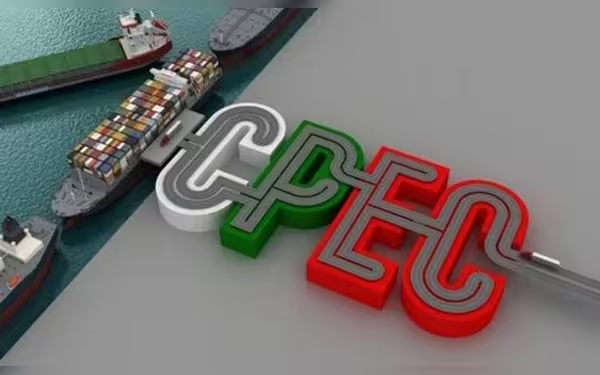Saturday, September 28, 2024 07:24 PM
Pakistani SMEs Struggle to Capitalize on CPEC Opportunities
- SMEs face financial and regulatory challenges.
- Strategic partnerships with Chinese firms are essential.
- Targeted interventions can unlock SME potential.
 Image Credits: nation_pk
Image Credits: nation_pkPakistani SMEs face significant challenges despite CPEC opportunities, requiring strategic partnerships and targeted interventions for growth.
Pakistan's small and medium enterprises (SMEs) play a crucial role in the nation's economy, acting as a backbone for employment generation and contributing significantly to the country's GDP. Despite the promising opportunities presented by the China-Pakistan Economic Corridor (CPEC), these SMEs face numerous challenges that hinder their growth and potential. The CPEC initiative, which aims to enhance trade and economic cooperation between Pakistan and China, offers a unique platform for SMEs to expand their operations and tap into global markets.
According to experts, the second phase of CPEC is particularly vital as it aims to create job opportunities within Special Economic Zones (SEZs). These zones are designed to provide SMEs with the necessary infrastructure and facilities to thrive. However, the reality is that many SMEs struggle to access finance, face regulatory hurdles, and encounter a shortage of skilled labor. These challenges can stifle innovation and limit the ability of SMEs to compete effectively in both local and international markets.
One of the key insights shared by industry experts is the importance of forming strategic partnerships. By collaborating with Chinese firms, Pakistani SMEs can benefit from Chinese expertise in various sectors such as agriculture, construction, and information technology. This collaboration can lead to joint ventures that not only enhance productivity but also create a more robust supply chain. The potential for growth is immense, but it requires a concerted effort from both policymakers and industry stakeholders.
To unlock the full potential of SMEs, targeted interventions are essential. Policymakers must prioritize initiatives that facilitate access to finance, such as specialized loan schemes and venture capital funds tailored to the unique needs of SMEs. Additionally, streamlining regulatory processes can help create a more enabling environment for these businesses to flourish. The establishment of SEZs along the CPEC route is a step in the right direction, but it is crucial to ensure that these zones are equipped with the necessary resources and support systems.
Moreover, technical training is vital for enhancing employee skills and boosting production. As the CPEC continues to evolve, both Pakistan and China must work together to sustain the momentum generated by this initiative. This collaboration should be rooted in principles of mutual respect and win-win cooperation, ensuring that both nations can reap the benefits of their partnership.
While the challenges facing Pakistan's SMEs are significant, the opportunities presented by CPEC are equally promising. By fostering a collaborative environment and addressing the barriers to growth, Pakistan can unlock the full potential of its SMEs, paving the way for a more prosperous future. The journey may be challenging, but with the right strategies and support, the SMEs can emerge as key players in the global market.













